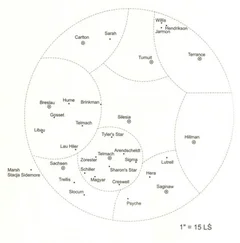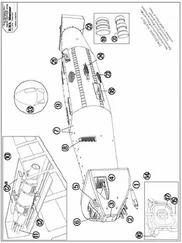David Weber - We Few
Здесь есть возможность читать онлайн «David Weber - We Few» весь текст электронной книги совершенно бесплатно (целиком полную версию без сокращений). В некоторых случаях можно слушать аудио, скачать через торрент в формате fb2 и присутствует краткое содержание. ISBN: , Издательство: Baen Publishing Enterprises, Жанр: Фантастика и фэнтези, на английском языке. Описание произведения, (предисловие) а так же отзывы посетителей доступны на портале библиотеки ЛибКат.
- Название:We Few
- Автор:
- Издательство:Baen Publishing Enterprises
- Жанр:
- Год:неизвестен
- ISBN:0-7434-9881-X
- Рейтинг книги:5 / 5. Голосов: 1
-
Избранное:Добавить в избранное
- Отзывы:
-
Ваша оценка:
- 100
- 1
- 2
- 3
- 4
- 5
We Few: краткое содержание, описание и аннотация
Предлагаем к чтению аннотацию, описание, краткое содержание или предисловие (зависит от того, что написал сам автор книги «We Few»). Если вы не нашли необходимую информацию о книге — напишите в комментариях, мы постараемся отыскать её.
We Few — читать онлайн бесплатно полную книгу (весь текст) целиком
Ниже представлен текст книги, разбитый по страницам. Система сохранения места последней прочитанной страницы, позволяет с удобством читать онлайн бесплатно книгу «We Few», без необходимости каждый раз заново искать на чём Вы остановились. Поставьте закладку, и сможете в любой момент перейти на страницу, на которой закончили чтение.
Интервал:
Закладка:
Laser heads began to detonate. Against ChromSten-armored ships, even those as light as cruisers, even the most powerful bomb-pumped laser had a standoff range of less than ten thousand kilometers; against a carrier, maximum effect of standoff range was barely half that. Cruisers began to take hits, belching atmosphere and debris, but Demesne and Atilius had been right. Over seventy percent of the incoming missiles were targeted on the carriers, a hundred thousand kilometers behind the cruisers.
CruFlot 150 turned, keeping its better broadside sensors positioned to engage the missiles which had already run past it, even as its ships took their own hammering. And they did take a hammering. Thirty percent of eighty-four thousand was "only" two hundred and sixty missiles per cruiser, and even with poor firing solutions and the carriers' support—what they could spare from their own self-defense—an awful lot of them got through.
Lieutenant Alfy Washington lay back in his seat, looking up at the stars through his glassteel canopy, his arms crossed. Fighters, and especially fighters on minimum power, had very little signature. Spotting them at more than a light-second or so required visual tracking, and space fighters were a light-absorbing matte black for a reason. But they were very, very fast. At an acceleration rate of eight KPS 2, they could pile on velocity in a hurry, and even their phase drive signatures were hard to notice at interplanetary distances.
He checked his toot and nodded silently at the data that was being fed to his division over the hair-fine whisker laser.
"Christ, Gajelis is dumb as a rock," he muttered, lying back again and closing his eyes. "And I'm glad as hell I'm not in cruisers."
HMS Bellingham rocked as another blast of coherent radiation slammed into her armored flank.
"Tubes Ten and Fourteen off-line," Tactical said tightly. "Heavy jamming from the enemy squadron, but we've still got control of the missiles."
For all their toughness, cruisers were nowhere near so heavily armored as carriers. Even a capital ship graser—or the forward-bearing spinal mount weapon of a cruiser like Bellingham —couldn't hope to penetrate a capital ship's armor at any range beyond forty thousand kilometers. Missile hatches and weapons bays were more vulnerable, since they necessarily represented openings in the ship's armored skin, but even they were heavily cofferdammed with ChromSten bulkheads to contain damage. For all practical purposes, an energy-armored combat had to get to within eighty thousand kilometers if it hoped to inflict damage, and to half of that if it wanted decisive results. Missiles had to get even closer, but, then again, missiles didn't care whether or not they survived the experience.
Cruisers, unfortunately, were a bit easier to kill, and Bellingham bucked again as yet more enemy fire smashed into her.
"Heavy damage, port forward!" Damage Control snapped. "Hull breach, Frames Thirty-Seven to Forty-six. Magazine Three open to space."
"That's okay. We got the birds out first," Demesne said, rubbing the arms of her station chair. Her tubes were flushed, and all she was doing now was surviving long enough to counter the Adoula squadron's ECM through the birds' guidance links. "Just let them stay dumb a little longer... ."
"Here comes anoth—" Tactical said, and then Bellingham heaved like a storm-sick windjammer.
The combat information center flexed and buckled, groaning as some furious giant twisted it between his hands, and Demesne felt her station chair rip loose from its mounts as the lights went out. The next thing she knew, she was on her side, still strapped to the chair, and one of her arms felt... pretty bad.
"Damage Control?" she croaked as she hit the quick release with her good hand. That was when she noticed the compartment was also in microgravity.
"XO?"
Nobody else in CIC seemed to be moving. Ensign Scargall was still in her station chair, sitting upright, but she ended just above the waist. What was left of her was held in place by a lap belt. The others looked to have been done by blast and debris. What a damn shame.
"Bit of a scar, there, Ensign," Demesne said. She was more than a little woozy herself, and she caught herself giggling in reaction.
"Captain?" her first officer replied in a startled voice. "I thought you were gone, Ma'am!"
"Bad pennies, XO. Bad pennies," she said. "How bad is it?"
"Heavy damage to Fusion Three and Five. CIC took a hit—I guess that's pretty obvious. Alternate CIC is up and functioning. Damage teams are on the way to your location."
"We're still fighting?" she asked, grasping a piece of scrap metal which had once been a million-credit weapons control station. Oh, well. There were others. Hopefully.
"Still in the game," the XO said. "Local gravity disruptions."
"Right." Demesne pushed herself across the shattered compartment to the armored hatch. It was warped, and the readouts on the access panel were dead. She considered the problem for a moment, then pulled herself along the bulkhead to the large hole in the armor which had been supposed to protect CIC. She'd just about reached the ragged-edged hole when there was a flutter, and she got her feet under her just as gravity came back on. It was about half power, but better than floating.
She considered the breached bulkhead with a frown. The hole, while undeniably large, wasn't exactly what anyone might call neat. The passageway outside CIC had been pretty thoroughly chewed up, and there was a gap—over a meter wide—in the deck. That didn't seem all that far, but this particular gap lit up the darkened passageway like an old-fashioned light bulb with the cheery red of near molten metal. Besides, she was in no shape to jump any gaps under the best of conditions, and the jagged, knifelike projections fanging the bulkhead hole scarcely qualified as "the best" of anything. She didn't like to think about what they'd do to her unarmored shipsuit if she tried to get up a run to vault across the gap and didn't hit the hole dead center. She couldn't afford any nasty little punctures, anymore than she could afford to come up short on that handy-dandy frying pan. The compartment's atmosphere had been evacuated—not surprisingly, since she could see stars through the meter-and-a-half hole in the passageway's deckhead if she leaned over and looked up. The frigging hole had been punched halfway through her ship! And it wasn't the only one, she suspected. That would have made her cranky, if she'd been the type.
But this wasn't the time to be thinking about that. The problem at hand was how to get out of CIC and to the alternate bridge. And, okay, admit it—she wasn't tracking really well. Probably the pain from the broken arm. Or maybe being thrown across the compartment.
She was still considering her condition—and the condition of her ship, which was just as bad or worse—when an armored Marine suddenly poked his head around the edge of the hole from the other side.
"Holy crap!" the Marine said on the local circuit. "Captain Demesne? You're alive ?"
"Am I standing here?" she snapped in a gravel voice. "Is this a red suit? Does anybody else get a Santa suit?"
"No, Ma'am," the Marine said. "I mean, yes, Ma'am. I mean—"
"Oh, quit stuttering and lie down," Demesne said, pointing to the glowing edges of the gap.
"Ma'am?" the Marine said, clearly confused.
"Lie down across the gap," Demesne said, slowly and carefully, as it speaking to a child.
"Yes, Ma'am," the Marine said. He set down his plasma cannon and lay down across the gap obediently.
Captain Demesne considered him for a moment, then crawled carefully across his armored back, slithering out of CIC and towards her duty.
Читать дальшеИнтервал:
Закладка:
Похожие книги на «We Few»
Представляем Вашему вниманию похожие книги на «We Few» списком для выбора. Мы отобрали схожую по названию и смыслу литературу в надежде предоставить читателям больше вариантов отыскать новые, интересные, ещё непрочитанные произведения.
Обсуждение, отзывы о книге «We Few» и просто собственные мнения читателей. Оставьте ваши комментарии, напишите, что Вы думаете о произведении, его смысле или главных героях. Укажите что конкретно понравилось, а что нет, и почему Вы так считаете.












